There must be a critical partnership between the government and journalists which cannot be based on antagonism, pressure, or restriction of freedom of speech. The government must understand that journalists are not their enemies.
This was discussed on June 6 during the event “Media as a Pillar of Democracy: Shaping Ukraine’s Future” by the Institute of Mass Information (IMI) and Reporters Without Borders, supported by the EU Delegation to Ukraine.
Rémi Duflot, Charge d’affaires a.i. at the EU Delegation to Ukraine, noted that media freedom is of fundamental importance on Ukraine’s path to EU accession.
“Journalists defend democracy. The desire for democracy permeated the entire Ukrainian society and made Ukraine a natural candidate for EU membership. This is the reason why Ukraine has maintained a high level of pluralism over the years, and it is based primarily on the freedom of the mass media, which we are seeing more and more often. This will also be of fundamental importance as Ukraine prepares to join the EU,” he noted.
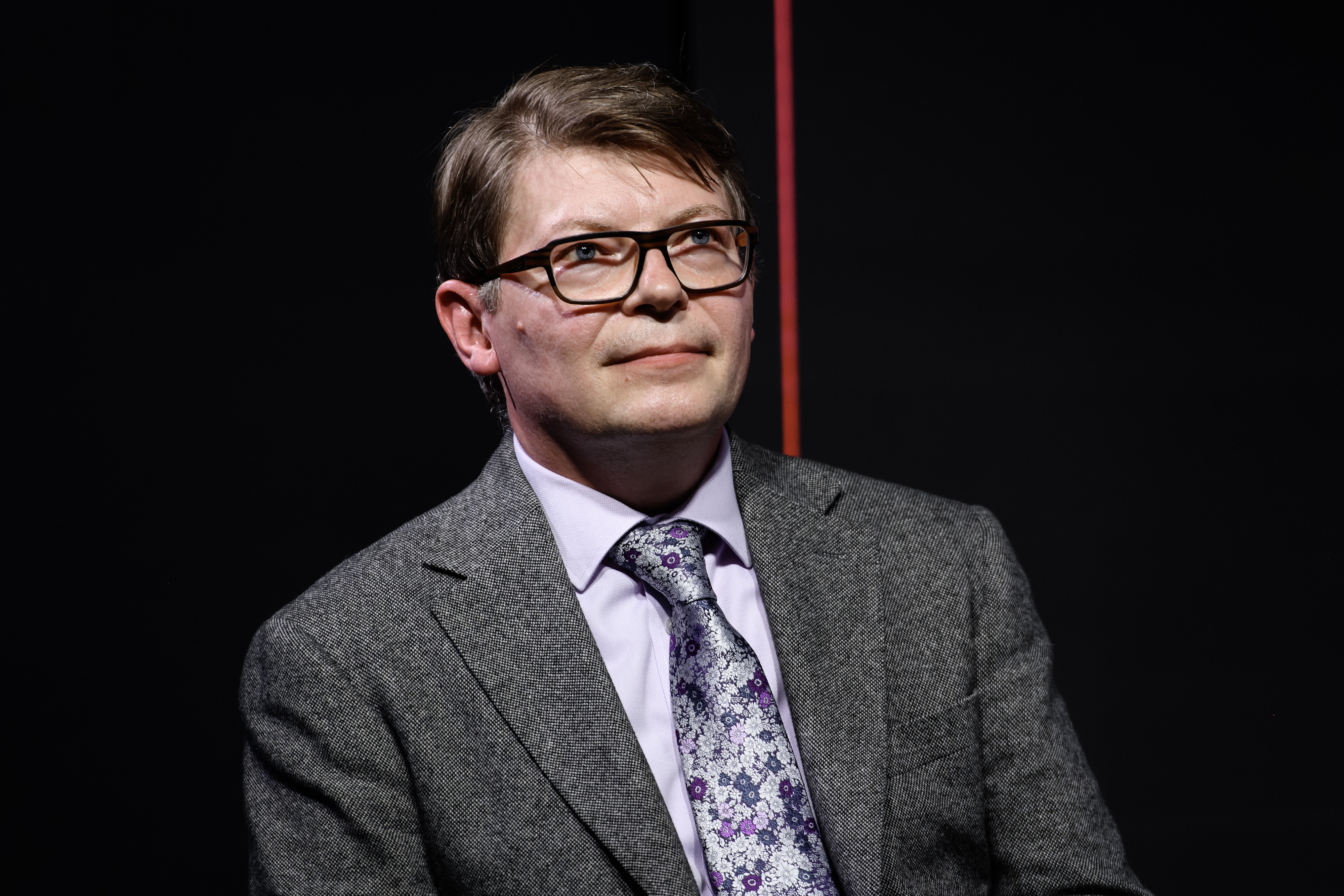
Rémi Duflot, Charge d’affaires a.i. at the EU Delegation to Ukraine. Photo by Vladyslav Musienko
Speaking of problems with journalists’ access to reporting on the impact of Russia’s aggression, Thibaut Bruttin, Assistant Director General at Reporters Without Borders, noted that it is important to allow journalists to carry out their professional duties.
“Journalism is not the voice of the government, not the voice of the Armed Forces, not the voice of the oligarchs. It is the force that the public trusts to deliver information independently, and it is very important for us today to confirm this perception,” said Thibaut Bruttin.
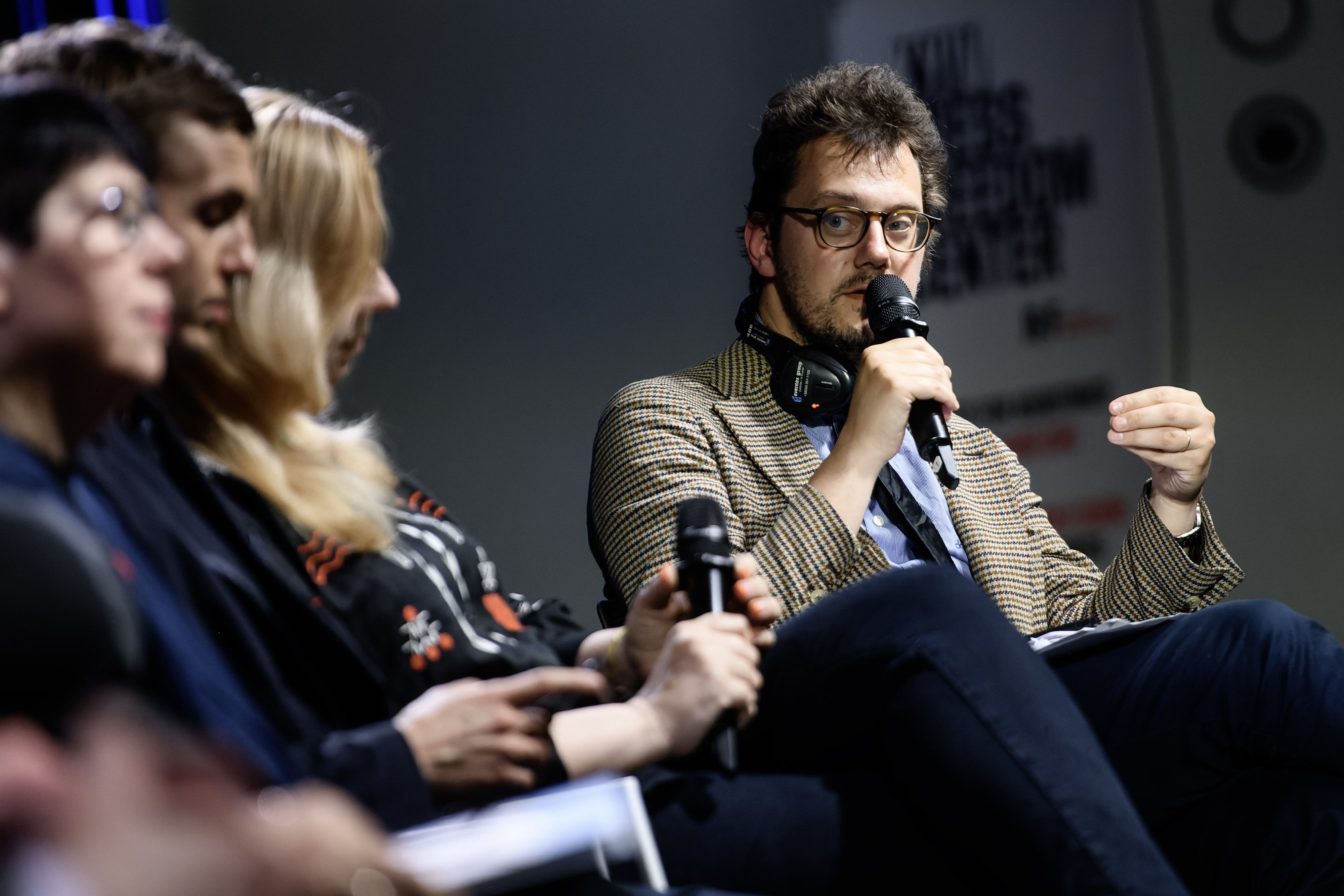
Thibaut Bruttin, Assistant Director General at Reporters Without Borders. Photo by Vladyslav Musienko
Mykhailo Tkach, chief investigator at “Ukrainian Pravda”, stressed that Ukrainian journalists, and investigators in particular, are enjoying unprecedented support from society.
“It is important that as many people as possible, in particular high-ranking officials who have a direct influence on the course of this war, our defense capabilities, realize that when making decisions and think about what will happen when we find out and tell the Ukrainian society, which is making huge sacrifices in this terrible war,” noted Mykhailo Tkach.

Mykhailo Tkach, chief investigator at “Ukrainian Pravda”. Photo by Vladyslav Musienko
Head of the Sumy media outlet “Kordon. Media” and the IMI representative in Sumy oblast, Alyona Yatsyna, says that one of the aims of her work is to stand in the way of the receding attention to the daily shelled oblast on the part of the media, the authorities and the public.
“When the war came, we did not expect it, and we did not plan work in war zones, but the war zones were in our home. And after the combat effectively ended in Sumy, we continued to make trips to the border, continued to show and film it all. We realized that we were physiologically unable to live without it,” noted Alyona. “We realized that if we remain silent, this entire territory will disappear. And it will first disappear from our perception, from the field of view of the authorities and other people.”
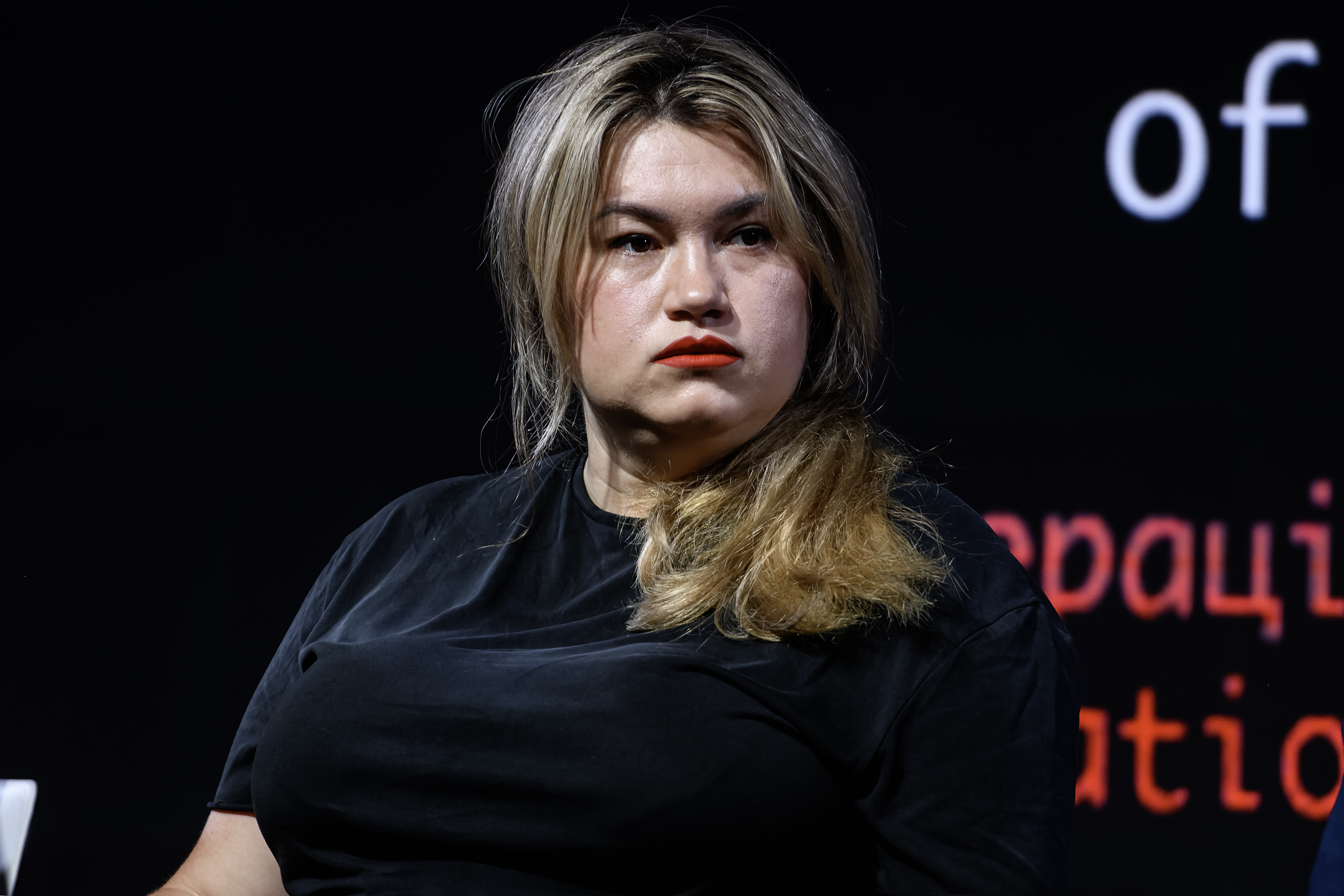
Alyona Yatsyna, head of the Sumy media outlet “Kordon. Media” and the IMI representative in Sumy oblast. Photo by Vladyslav Musienko
The chair of Suspilne’s Supervisory Board, Svitlana Ostapa, discussed defending the broadcaster’s independence despite underfunding and attempts at pressure.
“The legislator wrote it in the bill on Suspilne that state bodies should not interfere in the company’s programming policy. Unfortunately, not everyone remembers this. And then we turn to you (civil society organizations. – Ed.) for help. Although we have never been allocated the full amount of money from the state budget (0.2% of the total budget for the previous year) since 2017, we have managed to defend the company’s and staffing independence and editorial independence,” said Svitlana Ostapa.
She also reminded that three employees of Suspilne have died in the course of the Russo-Ukrainian war: Oleksiy Olkhovyk, Dmytro Siryk and Iryna Tsybukh. Cameraman Vasyl Filimon has been Russia’s prisoner for a long time.
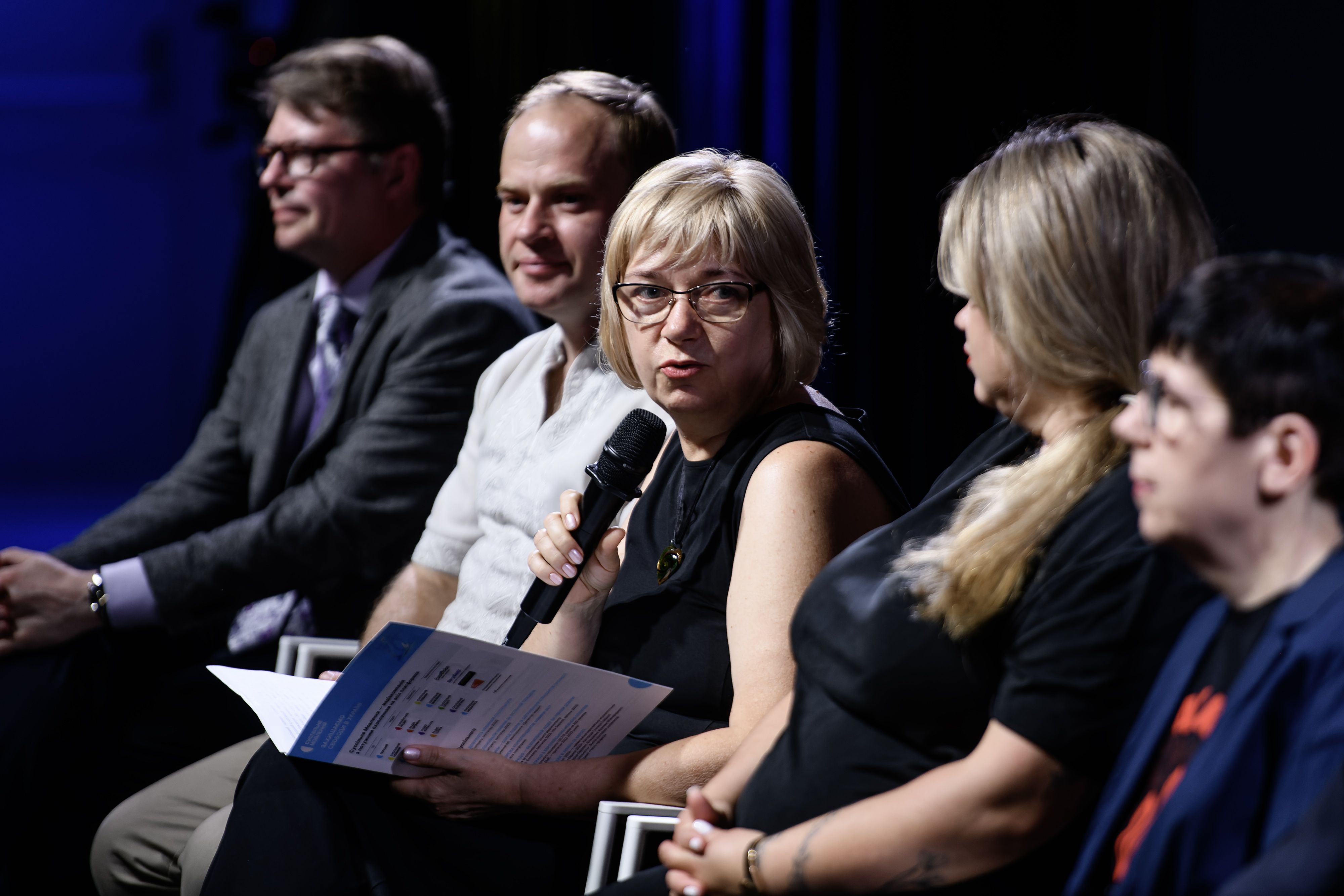
Svitlana Ostapa, the chair of Suspilne’s Supervisory Board. Photo by Vladyslav Musienko
The authorities must understand that journalists are not their enemies, noted Natalia Lihachova, head of the NGO “Detector Media”:
“When journalists criticize the government’s actions, they do so not because they consider it an enemy or because they are its enemies, but because, on the contrary, they are its friends. They want to help the authorities do everything necessary to defeat the external enemy. We are on one side with the authorities, but we are responsible partners to them. And a responsible partner is a partner who always tells the truth.”
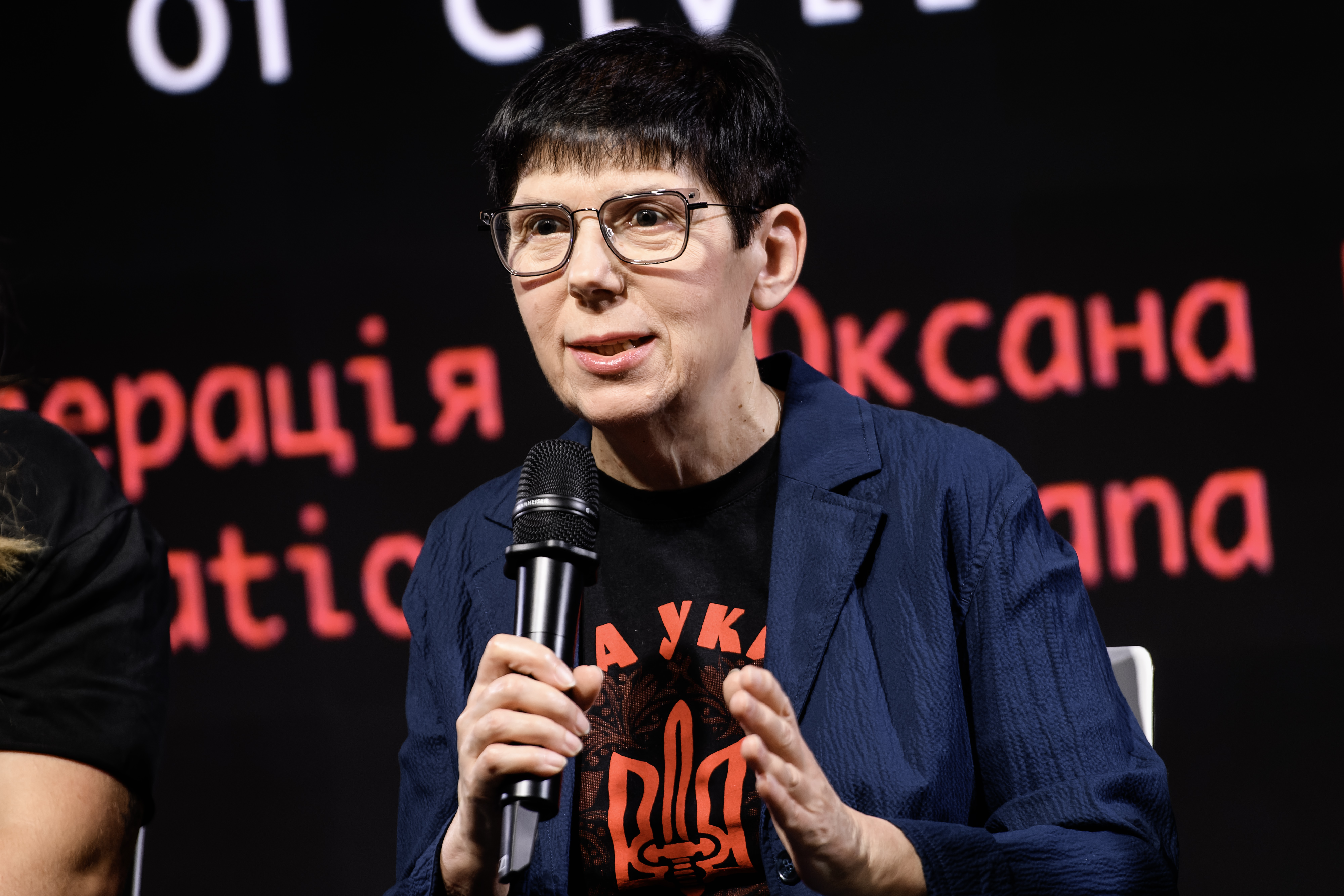
Natalia Lihachova, head of the NGO “Detector Media”. Photo by Vladyslav Musienko
Chairman of the Verkhovna Rada Committee on Freedom of Speech, Yaroslav Yurchyshyn, spoke about the agreement to hold quarterly hearings with representatives of law enforcement agencies, the prosecutor’s office, and the Commissioner regarding the progress of investigations into crimes against journalists.
“It is crucial that journalists are interpreted correctly – you are not our enemies, you are our critical partners, but unfortunately, the authorities not only in Ukraine very often perceive journalists’ critical partnership as a kind of attack. And it is very important to change this perception, especially in a society that is at war and whose key resource is unity. This unity suffers most severe blows when cases against journalists are not investigated. We have already reached a certain stage: in fact, primarily thanks to your work (journalists, NGOs. – Ed.), there are no instances of cases not being opened,” Yaroslav Yurchyshyn added.
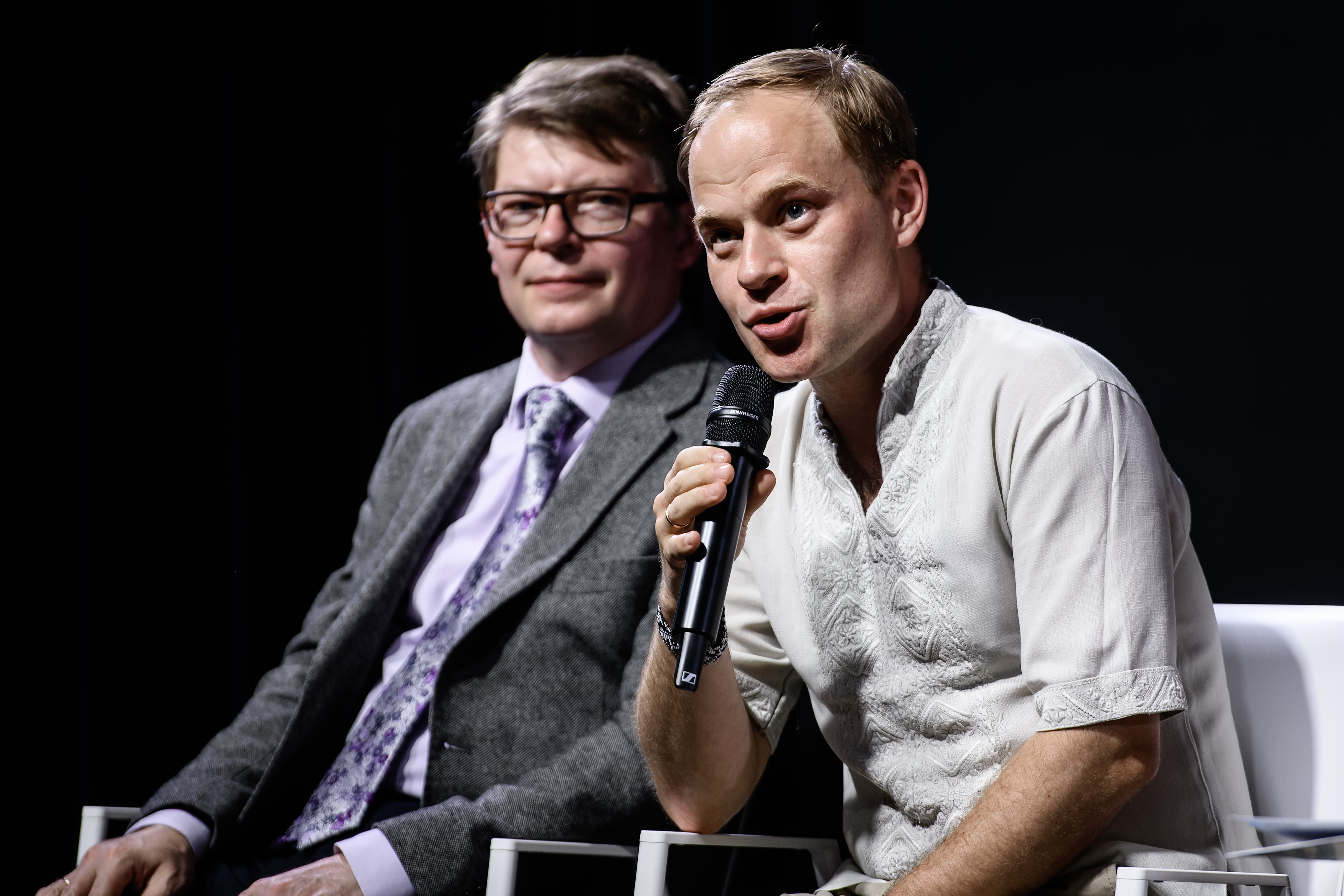
Yaroslav Yurchyshyn, Chairman of the Verkhovna Rada Committee on Freedom of Speech. Photo by Vladyslav Musienko
The director of the Institute of Mass Information and moderator of the discussion, Oksana Romaniuk, called on the international community to support Ukrainian journalists and spoke about the tasks facing the organization:
“Our media is now back in survival mode, so it is very important to support the existence of high-quality independent media. You can learn about the high-quality regional media outlets by using the Recommended Media Map, which is produced by the Institute of Mass Information together with Detector Media. IMI also makes the Quality Media List and does everything in our power to help all journalists be visible. Because for us it is first and foremost a visibility tool.
“To attract the attention not just of the international community, but also of the people who can support the media. Documenting Russia’s crimes, bringing the perpetrators to justice, fighting impunity for attacks on journalists, and uniting the community are IMI’s fundamental tasks. And, of course, working with the parliament, the legislator, with state bodies so that the media in this country can work without interference, so that there is mutual respect and everyone does their job for the sake of a democratic European country.”
The Institute of Mass Information (IMI) is a Ukrainian non-governmental media organization that has been operating since 1996. The IMI defends the rights of journalists, analyzes the media field and covers media-related events, fights propaganda and disinformation and has been providing media outlets with safety gear for trips to the combat zone since the start of the Russo–Ukrainian war in 2014.
The IMI carries out Ukraine’s only freedom of speech monitoring and keeps a list of high quality and sustainable online media outlets, documents Russia’s crimes against the media committed in the course of the war on Ukraine. The IMI has representatives in 20 oblasts of Ukraine and a network of “Mediabaza” hubs to provide journalists with continuous support. The IMI’s partners include Reporters Without Borders and Freedom House; the organization is a member of the International Organization for the Protection of Freedom of Expression (IFEX).
